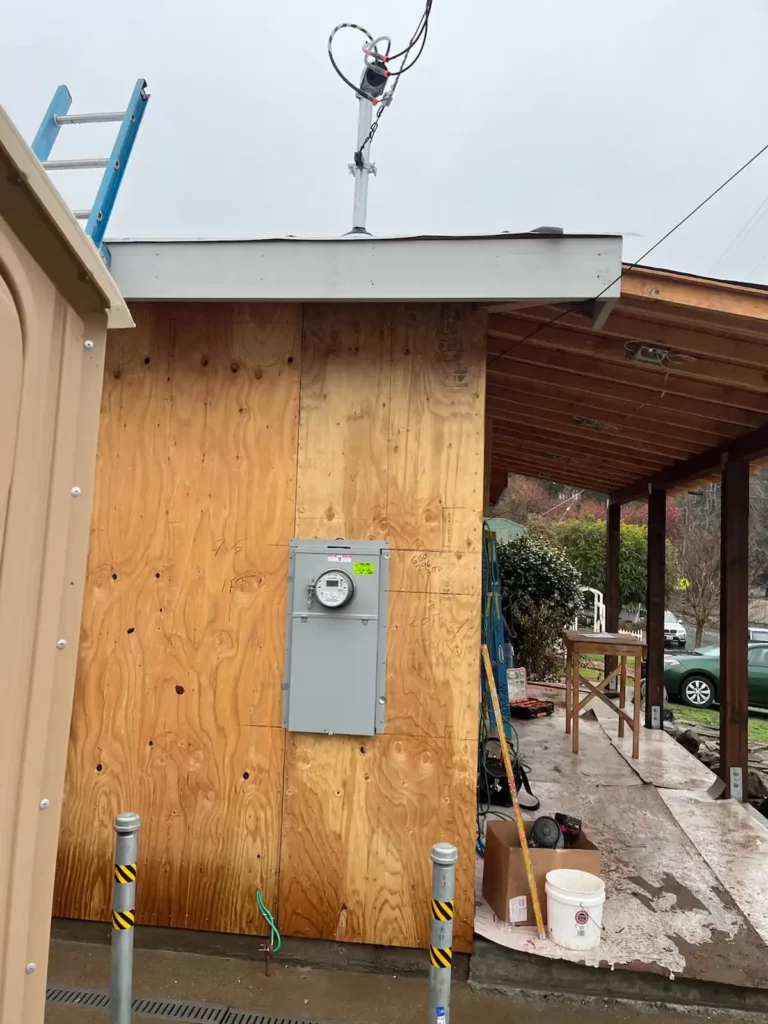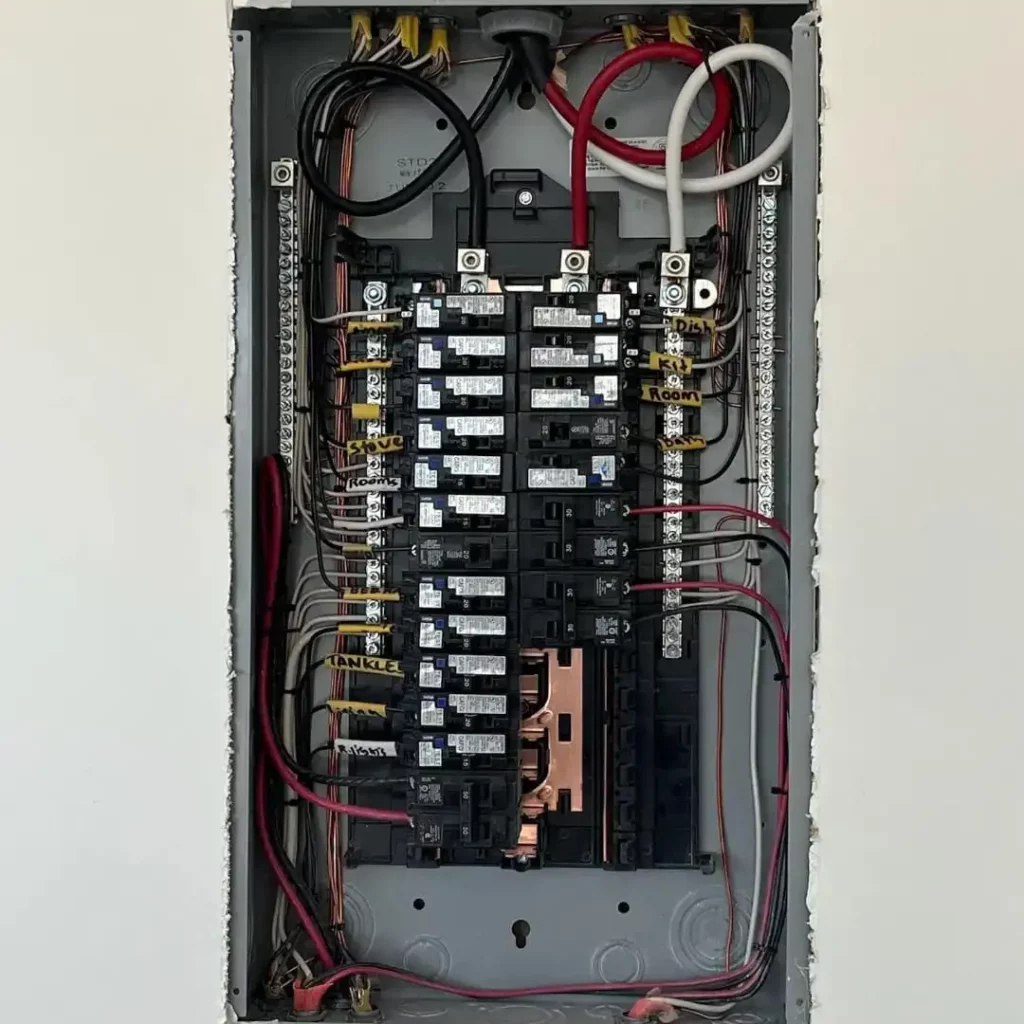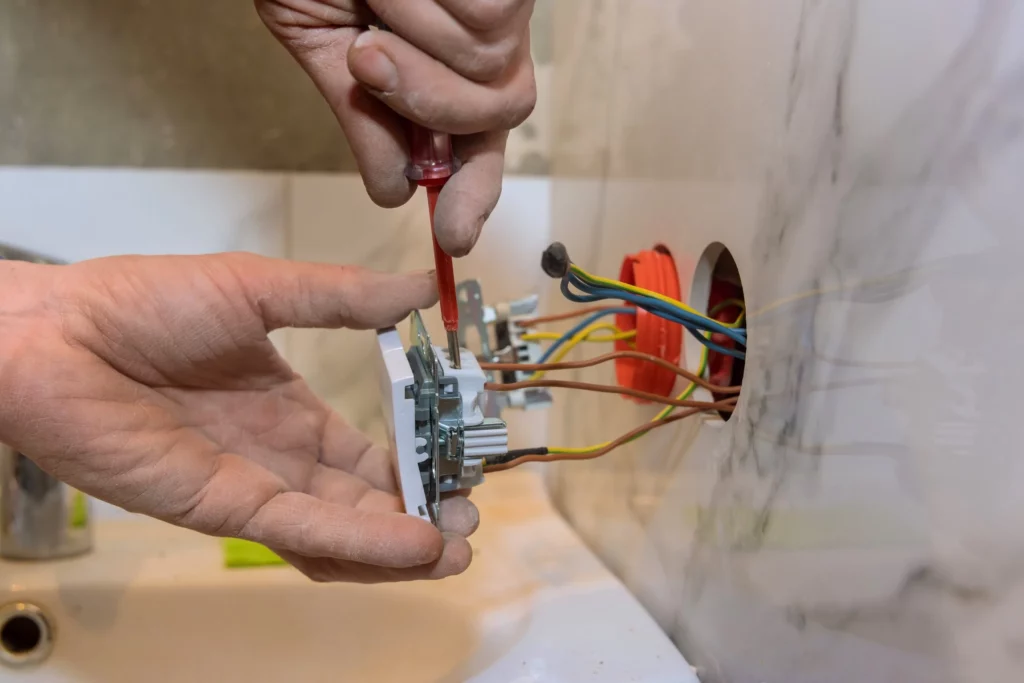Role of A Good Electrical Contractor
An electrical contractor plays a vital role in construction projects and maintaining electrical systems in commercial and residential buildings. This article provides an overview of what they do and why they are so important for operating safe and functional properties. Read on to understand the electrical contracting field.

Outline:
- What Does an Electrical Contractor Do?
- Getting Licensed as an Electrical Contractor
- Typical Electrical Contractor Services
- Electrical Installation in Commercial Buildings
- Maintaining Residential Electrical Systems
- Repairing Industrial Electrical Infrastructure
- Why Hire a Licensed Electrical Contractor?
- Skills Needed to Succeed as an Electrical Contractor
- Key Takeaways About Electrical Contractors
What Does an Electrical Contractor Do?
An electrical contractor is a licensed business person who oversees the installation and repairs of electrical systems in homes, businesses, and facilities. They may work on new building construction, renovations, or service existing electrical infrastructure.
Some of the typical responsibilities of an contractor include:
- Discussing electrical needs and project scope with clients
- Creating detailed plans and cost estimates
- Hiring, training, and supervising electricians
- Obtaining permits and scheduling inspections
- Ordering necessary electrical supplies and materials
- Overseeing teams during electrical installation or repair work
- Testing systems for safety and functionality
- Providing maintenance and upgrade services
Overall, electrical contractors handle the business and managerial tasks involved with electrical projects. They ensure work gets completed properly, on time, and on budget.
Have A Project In Mind?
Let's Text About Your ProjectGetting Licensed as an Electrical Contractor
To legally and safely operate as an electrical contractor, individuals must obtain a state license. The requirements vary by location, but often include:
- Minimum experience as an electrician (usually 2-4 years)
- Passing a trade exam
- Carrying liability insurance
- Registering a business name
- Paying licensing fees
Before bidding on jobs, prospective contractors must get this license. Periodic renewal is also necessary to keep the license active. Having this credential proves competence and allows access to commercial electrical work. Homeowners should always verify a contractor’s license before hiring them.

Typical Electrical Contractor Services
Once licensed, electrical professionals can provide a wide range of services to meet client needs. Common examples include:
- New electrical system installation in residential or commercial buildings
- Upgrading antiquated electrical infrastructure in older properties
- Rerouting electrical wiring during renovations or expansions
- Adding extra circuits, outlets, and lighting to overloaded systems
- Troubleshooting power fluctuations and wiring faults
- Repairing defective electrical components like breakers or switches
- Installing low-voltage systems like security alarms and home theaters
- Connecting renewable energy systems like solar panels and generators
- Providing 24/7 emergency electrical service
Reputable contractors have expertise across many specialties, from large-scale electrical distribution to single fixture repair. They can handle any electrical project to ensure it is code-compliant and safe.
Electrical Installation in Commercial Buildings
One major service electrical experts provide is handling electrical systems in new commercial construction. This involves coordinating with the builder to wire an entire building, including:
Questions About Our Services?
Let's Connect And Discuss- Main power supply panels and high-voltage infrastructure
- Electrical circuits for lighting, outlets, and equipment
- Integration of fire alarms, security systems, and data networks
- Phone, cable, and internet wiring and conduit
- Generator or renewable energy system connections
- Customized controls, switches, and dimming
Proper planning ensures the complex needs of modern commercial buildings are met. Experienced electrical contractors prevent issues like underpowered circuits, code violations, and unsafe conditions.
Maintaining Residential Electrical Systems
Beyond new construction, electrical contractors also maintain, inspect, and repair existing residential electrical systems. Homeowners rely on their expertise for:
- Adding circuits and outlets when systems are overloaded
- Troubleshooting fuse box and wiring problems
- Fixing flickering lights from loose connections
- Upgrading old wiring to meet modern safety codes
- Installing ceiling fans, outlets, lighting, and switches
- Repairing appliances, equipment, and low-voltage wiring
- Providing emergency electrical service 24/7
With regular maintenance from a qualified electrical contractor, homeowners can keep their electrical systems running safely for decades.
Repairing Industrial Electrical Infrastructure
Electrical contractors who specialize in large-scale electrical service are also critical for maintaining infrastructure in industrial facilities. This includes:
- Repairing high-voltage equipment like transformers and motors
- Upgrading antiquated wiring and electrical panels
- Installing new circuits to handle increased power loads
- Providing emergency generator service and repairs
- Fixing short circuits and power failures
- Testing and troubleshooting large electrical systems
Their expertise keeps assembly lines running, data centers operational, and vital infrastructure online. Customized industrial electrical service prevents costly downtime.
Why Hire a Licensed Electrical Contractor?
After seeing everything we do, it should be clear why they are so indispensable. But here are a few key reasons homeowners and businesses should specifically seek out licensed professionals for their electrical needs:
Safety – Faulty electrical work can result in fires, electrocution, and other dangers. Licensed contractors have the skills and knowledge to work safely. (See this blog post on safety in wiring!)
Code compliance – Licenses prove contractors have mastered the relevant electrical codes to install legal, up-to-standard systems.
Quality workmanship – Contractors typically have years of training and experience for clean, long-lasting electrical work.
Insurance coverage – Licenses require liability insurance, protecting clients if accidents occur.
Warranties – The best contractors provide warranties on parts and labor for additional consumer protection.
Get In Touch!
Text Us For A Quote
Don’t risk safety and code violations with DIY electrical work. Contact a licensed pro for expert service with guaranteed results.

Skills Needed to Succeed as an Electrical Contractor
Becoming an electrical contractor takes substantial skills beyond technical electrical knowledge. Those who thrive in this business also possess strengths like:
Communication – They work directly with clients and electricians to understand needs.
Organization – They juggle multiple tasks and projects simultaneously.
Business savvy – They estimate costs, manage bids, and operate the back-office side.
Leadership – They build teams, oversee workers, and ensure quality results.
Troubleshooting – They can assess electrical issues and develop solutions.
Attention to detail – They avoid mistakes that lead to problems or violations.
Electrical expertise opens the door to contracting, but these additional skills separate the most successful electrical business owners.
In Conclusion:
- Contact a licensed electrical contractor for installations, upgrades, maintenance, and repairs.
- Verify their credentials and reputation before hiring.
- Ask about all costs, timeframes, warranties, and credentials.
- Avoid amateur DIY electrical work; it can be extremely dangerous.
- Adhere to local codes and regulations when completing any electrical project.
- Upgrading old electrical systems provides safety and functionality.
- Look for contractors experienced in residential, commercial, or industrial work.
- Electrical contractors will continue to be in high demand as buildings require more power.
I hope this overview has helped explain the crucial role electrical contractors play in construction and electrical services. Let me know if you have any other questions!
Questions About A Project?
Let's Connect!
FAQ - Frequently Asked Questions
What is the electrical construction industry?
The electrical construction industry refers to the sector that involves the installation, maintenance, and repair of electrical systems in buildings, including residential, commercial, and industrial structures.
How do electrical contractors work in the industry?
Electrical contractors are professionals who specialize in electrical construction and work on various projects, such as new building construction, renovations, or repairs. They are responsible for installing electrical systems, wiring, fixtures, and ensuring they meet safety regulations and standards.
What is the role of the National Electrical Contractors Association (NECA) in the industry?
The National Electrical Contractors Association (NECA) is a trade association that represents the electrical construction industry in the United States. NECA provides resources, training, advocacy, and support for electrical contractors and promotes the industry’s interests.
What are integrated building systems in electrical construction?
Integrated building systems refer to the incorporation of various electrical and telecommunications systems within a building to enable them to work together efficiently. This can include systems for lighting, security, HVAC, communications, and more.
What is the process to become an electrical contractor?
To become an electrical contractor, you need to obtain an electrical contractor license. The specific requirements may vary by location, but typically involve completing the necessary education and training, gaining relevant work experience, and passing a licensing examination.
What is the difference between electrical contractors and electrical engineers?
While both electrical contractors and electrical engineers work in the field of electricity, they have different roles. Electrical contractors are responsible for the installation, maintenance, and repair of electrical systems, while electrical engineers focus on designing and overseeing the engineering aspects of these systems.
What is the NEC code in electrical construction?
The NEC code, short for National Electrical Code, is a set of standards and regulations that governs the safe installation of electrical wiring and equipment in the United States. Compliance with the NEC code is necessary to ensure electrical systems are installed and used safely.
What is the role of fiber in electrical construction?
Fiber, or fiber optic cables, are used in electrical construction for transmitting data, voice, and video signals over long distances. They are commonly utilized for telecommunications purposes and provide faster and more efficient communication compared to traditional copper cables.
